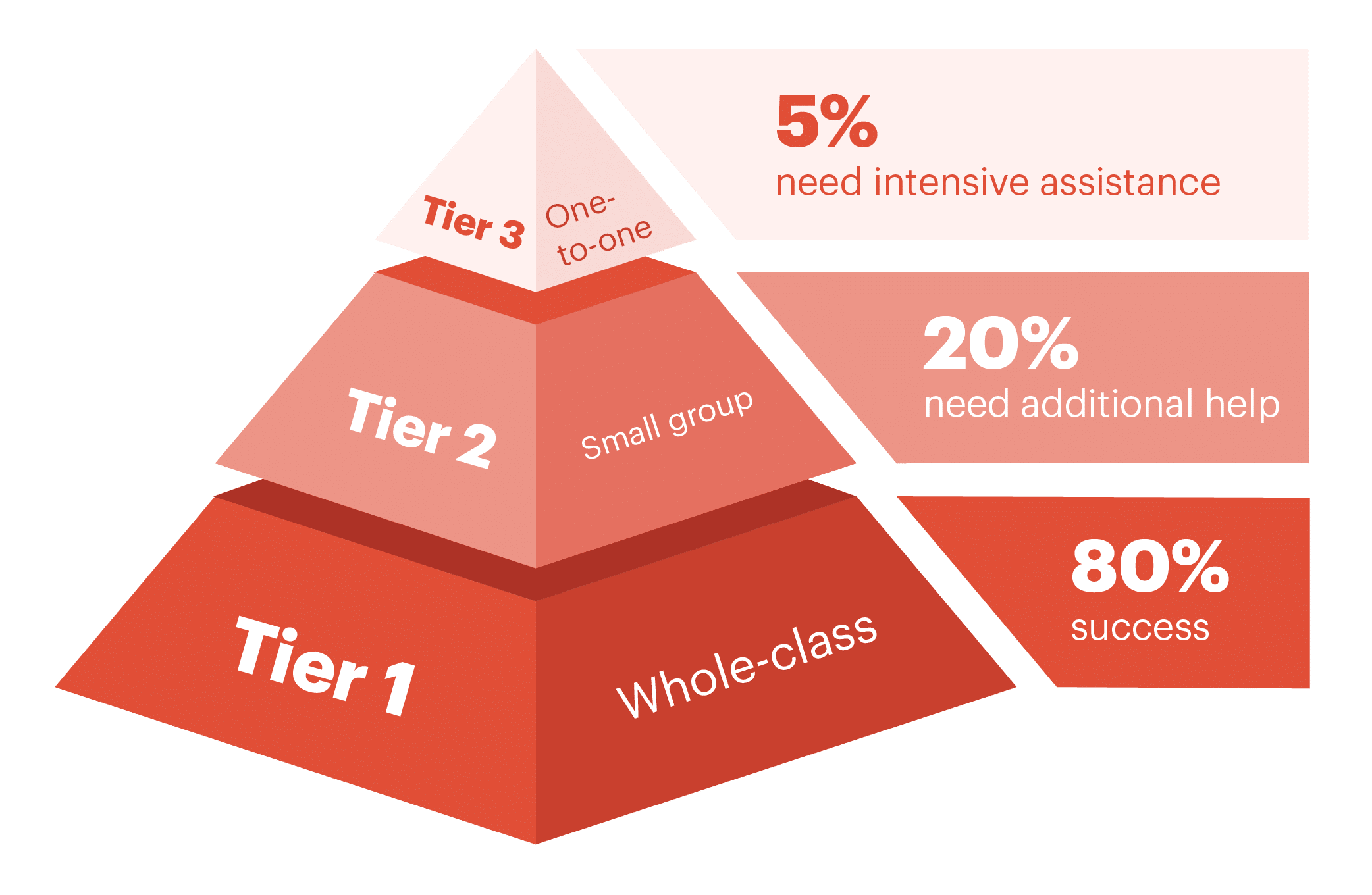Insights from the ACPPA 2024 Member Survey
Recently the Australian Catholic Primary Principals Association (ACPPA) conducted a member survey, inviting MultiLit as a sponsor to contribute to the questionnaire. The 2024 Member Survey sheds light on the current state of literacy intervention in schools, highlighting both the successes and the challenges faced by educators. The results from the ACCPA survey are in line with the 2024 MultiLit survey, with over 70% of respondents indicating more than 20% of their students require Tier 2 intervention (intensive small group support delivered outside of the classroom).
The Response to Intervention (RtI) and Multi-Tiered Systems of Support (MTSS) frameworks state that less than 20% of students should require Tier 2 intervention when quality whole-class (Tier 1) evidence-based instruction is in place.
Diving into the results, we can see where there is further alignment with the 2024 MultiLit survey results.

The need for Tier 2 literacy intervention
The ACPPA survey reveals a significant need for Tier 2 literacy intervention among students in Foundation, Year 1, and Year 2. Tier 2 intervention involves targeted support delivered in small groups, supplementing regular classroom instruction. The data shows that:
- 64% of schools report that 20% – 40% of their students require Tier 2 intervention.
- 28% of schools state that less than 20% of their students require intervention.
The 2024 MultiLit survey response to a similar question indicated 78% of respondents believe their school is not meeting the RtI or MTSS target of 20%. These results continue to underscore the widespread need for additional literacy support in the early years of schooling.
Provision of literacy intervention
Despite the high demand, the provision of Tier 2 intervention varies significantly:
- Only 36% of respondents indicate their schools manage to provide intervention to 100% of the students who need it.
- 47% of schools can support less than 89% of their students requiring intervention.
This gap between need and provision highlights the challenges schools face in delivering adequate support.
Main challenges in providing literacy intervention
The survey identifies three key challenges that hinder the effective delivery of literacy intervention:
- Insufficient staff resources:
- 68% of respondents cite a lack of staff as a major barrier. Schools struggle to find and retain qualified teachers, and existing staff are often stretched thin.
- Inadequate funding:
- 58% of schools report insufficient funding as a significant issue. Limited financial resources restrict their ability to hire additional staff or purchase necessary materials.
- Logistical issues:
- 43% of schools face logistical challenges, such as securing appropriate spaces for small group interventions and coordinating schedules to minimize disruption to regular classes.
Once again, the ACPPA survey response is in line with the MultiLit survey, with 68% or respondents identifying resourcing as the biggest constraint in providing timely intervention to children that need it. Budget and logistics are also referenced.
Approaches to literacy curriculum planning
Schools adopt various approaches to planning their literacy curriculum:
- 34% of schools have teachers collaborate to design a curriculum that combines elements from various programs.
- 29% use a single literacy program purchased from an external provider.
These diverse approaches are also reflected in the MultiLit survey, where 54% of respondents report teachers in their school work together to create a shared curriculum. These custom curriculums are either built from scratch or by combining elements from different programs, which has an impact on the efficacy of their literacy curriculums.
Effectiveness of whole-school literacy strategies
When evaluating the effectiveness of their whole-school literacy strategies, 84% of respondents indicated that their strategy is good to excellent, at least adequately addressing most students’ needs. No respondent rated their strategy as poor, indicating significant changes are needed.
Schools may not realise they have a problem, as effective whole-class teaching in the early years can reduce the number of students in need of Tier 2 intervention.
Conclusion
The response from the ACPPA 2024 Member Survey highlights the critical need for Tier 2 literacy intervention in early education and the significant challenges schools face in providing this support. The responses, much like the 2024 MultiLit survery responses, demonstrate the need for implementing effective whole-class instruction in the early years to reduce the need for Tier 2 intervention, cost and resourcing burdens on schools.
Find out more about effective evidence-based Tier 1 instruction with InitiaLit.